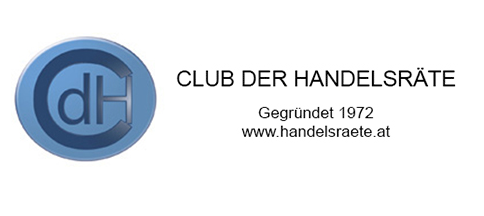Visit to the Vienna Institute for International Economic Studies (WIIW)
Our last visit in 2024 was to WIIW. The Vienna Institute for International Economic Studies is one of the principle centres for research on Central, East and Southeast Europe with worldwide recognition.
In the Global Go To Think Tank Report of the University of Pennsylvania WIIW was elected twice to 3rd position in a worldwide comparison of Think Tanks after Bruegel (Belgium) and Brookings Institution (USA).
Its thematic
work is focused on macroeconomic developments and structural change,
international economics, labour markets and social issues, as well as on
selected issues related to sectoral and regional economic developments. Thus it
is the Austrian think tank for first-hand expertise on Central, East and
Southeast Europe with international highly skilled professionals mainly from
the countries they are specialized on.
We were
received by the Deputy Director of WIIW, Richard Grieverson, who
gave us a "Presentation and outlook of the economic situation for
Austria, CEE/SEE countries after the US Presidential Elections".
After a short
presentation of the activities of WIIW Deputy Director Grieveson switched to
the outcome of the US Presidential Elections, which he considered being a
serious problem for Europe, especially as Europe is very dependent concerning
security. He mentioned Trump was obsessed with tariffs and especially Germany
would suffer. But the Central European countries would be affected indirectly,
as they are highly dependent on the German economy. Deputy Director Grieveson
pointed out that the US is for the EU much more important than China. If NATO
was in doubt it would be a serious problem for FDI, Foreign Direct Investment.
NATO is the condition for the success of green field investments in CEE/SEE. Up
to now the economic development in CEE/SEE however was better than in Germany.
Some near shore effect could be seen especially in the Western Balkans. In the
CEE/SEE countries the inflation is falling. The economies of Poland, Czech
Republic, Slovakia and Hungary was growing, Austria was in recession. The
Russian economy was booming for specific reasons (war economy) but with high
inflation. Because of Russian attacks on the energy installations and the
relentless war the economic results in Ukraine were decreasing. According to
Deputy Director Grieveson Austria faced higher energy costs combined with
higher wages, thus loosing competitiveness. On the other side Poland is back
again. For Croatia, Romania, Slovakia, Poland and the Baltic States the outlook
for investments was good. Some countries did not use the EU funds sufficiently.
Deputy Director Grieveson saw German industry in trouble, especially the car
industry, which had been the motor of the industrial development before. China
was leading in the development of advanced batteries. Europe as a whole was
facing the high energy prices, much higher than in the US. If this was
continuing for a longer period it could lead to a general recession. A new
growth model would need innovations. Concerning the digital sphere Grieveson
considered the CEE/SEE countries in a good position, especially Estonia.
Furthermore Grieveson said, that EU enlargement would be good for getting
ressources and new markets. He would see the expansion of the EU positive.
The
presentation was followed by a lively Q&A session ending in individual
discussions with refreshments and snacks.
Richard
Grieveson is Deputy Director at the Vienna Institute
for International Economic Studies (wiiw) and a member of the Balkans in Europe
Policy Advisory Group (BiEPAG). He coordinates wiiw’s analysis and forecasting
of Central, East and Southeast Europe. In addition he works on European policy
analysis, European integration, EU enlargement, economic history, and political
economy. He holds degrees from the universities of Cambridge, Vienna and
Birkbeck. Previously he worked as a Director in the Emerging Europe Sovereigns
team at Fitch Ratings and Regional Manager in the Europe team at the Economist
Intelligence Unit.
His
comprehesive scientific publications are listed on the website of the WIIW.


